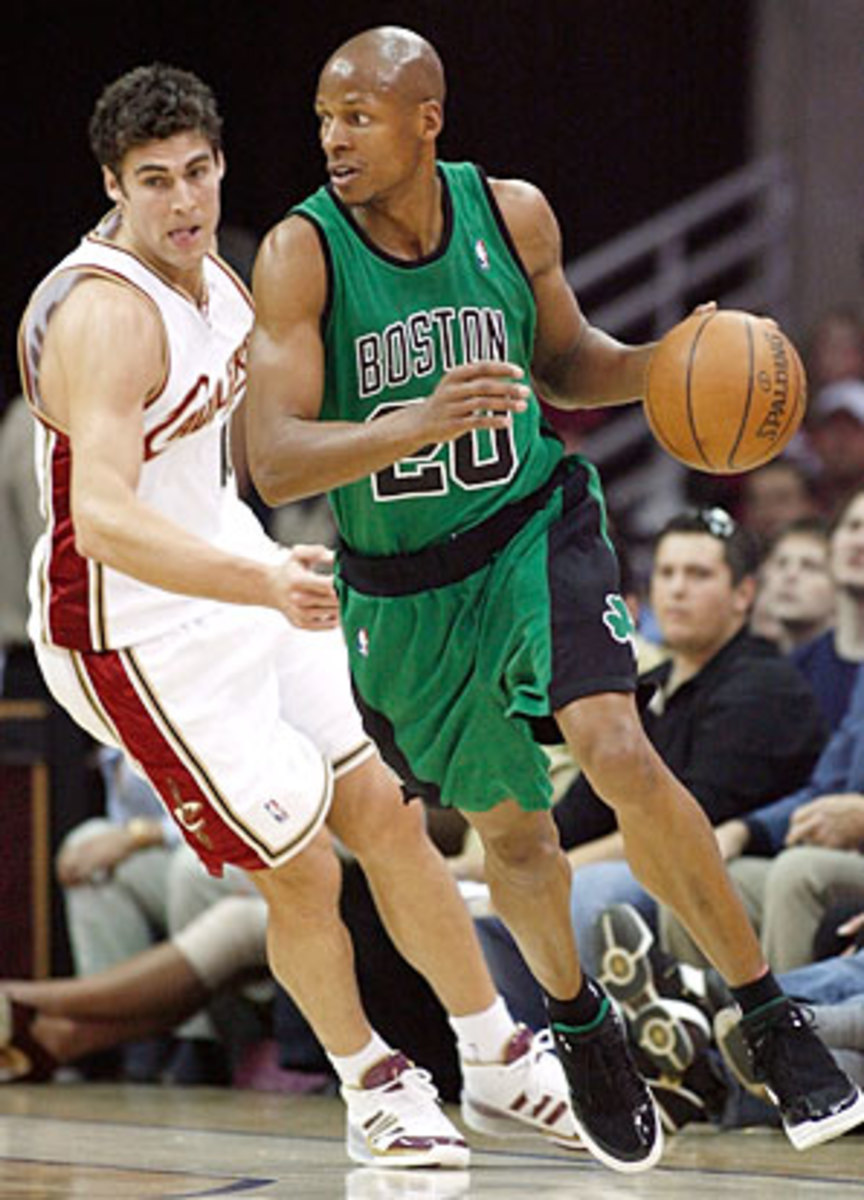Warning signs for the Celtics
The Celtics are counting on a return home to help repair their numerous flaws in a crucial Game 5 on Wednesday against the Cavaliers, who evened the conference semifinal with two victories in Cleveland. But the right to play two of the remaining three games in Boston -- if the series goes the distance -- is one of the few advantages left over from the across-the-board gains the Celtics made during the regular season.
Postseason trends are conspiring against the league's No. 1 seed. The Celtics were the hardest-working and most consistent defensive team before the playoffs. In Game 3 at Cleveland, however, the Cavaliers became the first postseason opponent to make more than half of its shots (53.6 percent) against Boston. Though the Cavs were held to 45.5 percent in their Game 4 win, those shooting numbers were skewed by a 3:53 span at the end of the first half when they were 1-for-9 while LeBron James was benched with three fouls. During James' 44 minutes, the Cavs were able to shoot 50 percent -- a development that may continue if James plays close to 48 minutes in Game 5, as expected.
The Cavs committed only seven turnovers, including none under the pressure of the final 17:51. Note, too, that streak-shooting guard Daniel Gibson has been coming on recently for Cleveland. The Celtics will regret their poor Game 3 effort when they should have been pouring it on to knock out the Cavs, who are playing at a higher level now than a few days ago.
Boston coach Doc Rivers stresses that his defense has been made vulnerable because the offense has been atrocious. All-Stars Paul Pierce (12.5 points and 34.6 percent shooting in the series) and Ray Allen (10.3 ppg and 33.3 percent) have been compelled to force shots because there is no longer any flow to the offense. The Celtics' consistent scorer has been Kevin Garnett (18.3 ppg and 56.1 percent), but they haven't gone to him enough to establish a rhythm that could eventually liberate Pierce and Allen. Garnett has been further limited by his matchup against backup Anderson Varejao, one of the few big men capable of equaling KG's energy.
The most promising of all trends for Cleveland has been the increasing influence of James, whose play has improved with each game since his shocking 2-for-18, 10-turnover performance in the series opener. After serving as a playmaker and decoy to create opportunities for his teammates in Game 3, James reemerged as a dominant finisher in the final three-and-a-half minutes of Game 4, when he expanded Cleveland's three-point lead by hitting a huge three-pointer, next drawing three defenders to create an open three for Gibson, then finishing off the Celtics with a ridiculous dunk that was sensational even by LeBron's standards.
"There was a lot built up -- missing shots that I normally make, turning the ball over,'' James said of his dunk. "That was the play we needed as a team.''
That James is averaging 18.8 points while shooting 25.6 percent (20-of-78) in the series should have presented an enormous advantage to the Celtics, considering the Cavs won 45 games this season while relying on his 30.0 points. But he has nonetheless been the best player on the floor while providing the kind of inspiration of which the Celtics are suddenly bankrupt.
Garnett, Pierce and Allen aren't capable of dominating a series single-handedly as James has done in the past and is starting to do now; they need each other to pull things their way. But we saw the same dynamic a year ago when the top-seeded Pistons were unable to find rhythm while being upset by James and the Cavs. The way this series is headed, can the Celtics reverse their negative trends in time to prevent a Cleveland-Detroit rematch in the conference finals?
"The better team has to win on the road,'' James said. "We're looking forward to going to Boston and winning a game on the road.''






